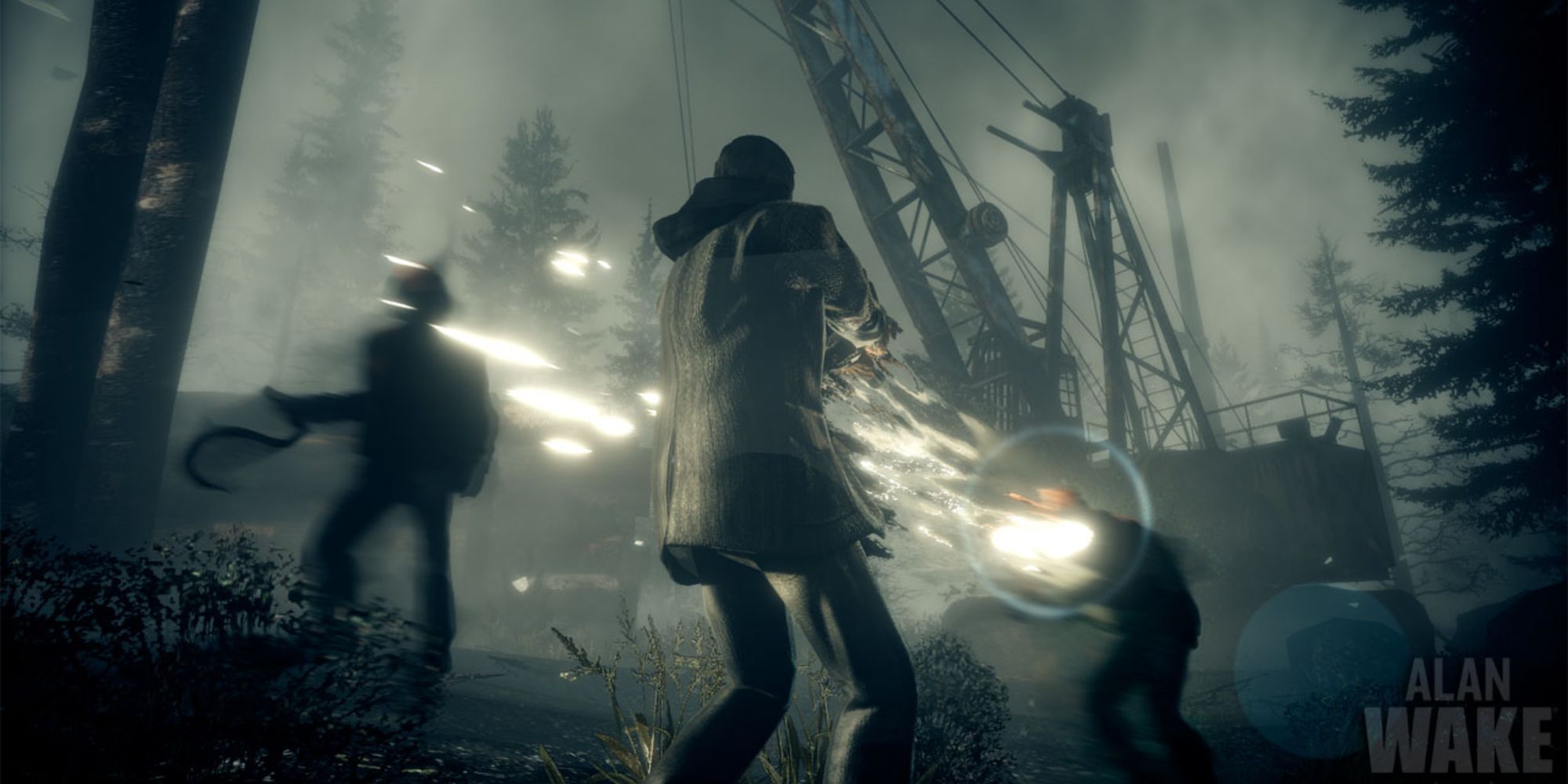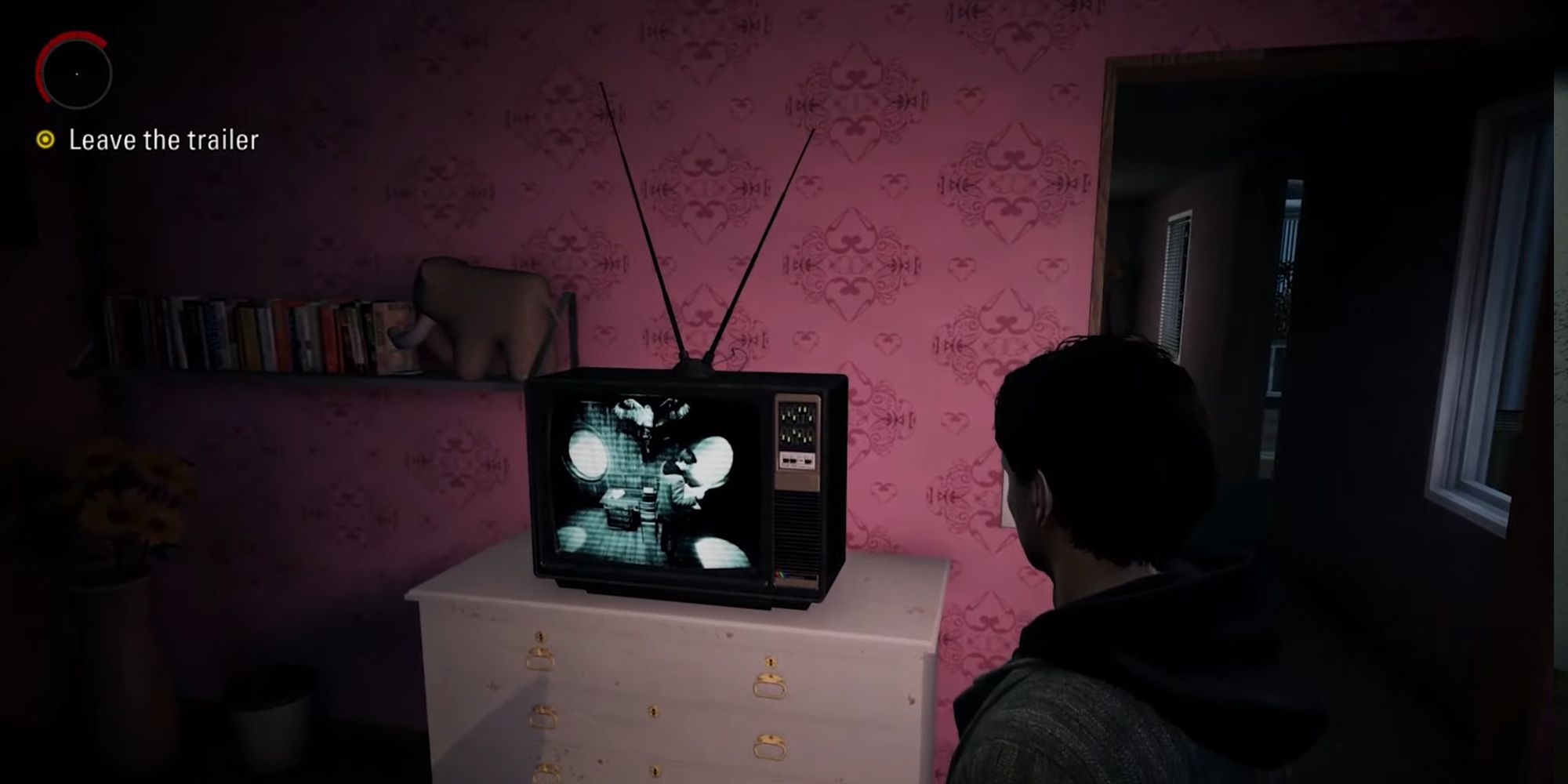Remedy Entertainment has a brazen, unadulterated love for cinema. In Max Payne, you evoke all the chaotic action of film noir and thrillers when playing as the titular disgraced cop. You slow-mo your way towards destruction, drifting and gliding fluidly across asphalt and concrete while wantonly spraying bullets on your enemies. Then there’s Quantum Break, which is basically live-action television and third-person shooter jammed into one package. Rather than the self-contained mini television series in Max Payne, Alan Wake, and Control, you get to watch entire 20 minute segments in between Quantum Break’s playable episodes. And of course in Alan Wake, you’re Alan Wake, a pompous douchebag who imagines he’s in a Stephen King novel, and talks to a non-existent audience like the leading man of a pulpy action thriller. You get the drill; the word ‘cinematic’ is never too far away when describing a Remedy game.
Alan Wake, in particular, is ripe with the spirit of television. Every major story arc is delivered in episodes, with the start of each arc introduced with a recap of the previous. You can execute a cinematic dodge, which will play a long camera shot that alerts you to attacking enemies, as long as you button-mash the sprint and direction keys at the right time. Even the Alan Wake setting is extremely reminiscent of David Lynch’s Twin Peaks, and its in-game TV series, Night Springs, is a clear homage to The Twilight Zone. In the original from a decade ago, there are even product placement deals with Verizon and Energizer, which adds another layer of kitsch, albeit unintentionally, to the whole ‘90s television schtick. It’s something I have missed as a new player to the game, since that has been done away with in the game’s new Remastered version. Rather than feel dated, however, the game’s focus on exploration and horror are still largely captivating even a decade later, as it still boosts a good mix of evocative story-telling and game-like interactivity.
But it’s in the game’s finale that Alan Wake revisited a more traditional video game structure—the root of what actually holds this interactive thriller together—as it escalates towards a series of all-out enemy encounters. Poltergeists and axe-wielding specters alike rampage towards you as you inch towards your final destination. In an effort to ramp up its pacing, the game frantically tosses hordes of shadowy figures at Wake. The focus of Alan Wake in its final hours becomes its combat, as you try to kill as many of these apparitions as possible. That said, the tonal shift from hapless writer who has never held a gun before this series of supernatural events, to action-movie badass was drastic, but fortunately brief. It’s chaotic, but unreasonably so. I would rather be subject to more of Wake’s dramatic soliloquies, because at least that seemed to make more sense than this gratuitous action.
The subsequent DLC that followed—The Signal and The Writer—chose to lean heavily into this shift, however. Without spoiling too much, Wake soon descends deeper into depravity and darkness in these two chapters, with combat taking place in ridiculously tight quarters, and enemies materialising in corners off-screen, only to swing their chainsaws and axes at you when it’s nearly impossible to see them coming. After a while, combat encounters become extremely predictable; a cache of resources becomes available before these fights, with these neatly segmented by television screens of a deranged Wake narrating his nightmares. It reeks of the repetitive cycles of triple-A shooters: a short exposition of what’s taking place in the game, followed by several, drawn-out minutes of pointless firefights. It’s tedious and dreadful.
That’s not to say that The Signal and The Writer DLC have zero redeeming qualities. As compared to the original episodes, their environments are much more terse and foreboding, and their simulacra of Wake’s twisted reality can potentially elevate the DLC to standalone content, rather than being presented as two additional but similar chapters to the original game. In appealing to players who prefer the combat-heavy segments of Alan Wake—which is rather puzzling given that Wake isn’t the most spry of action heroes—it’s a pity that the DLC becomes too laborious to play through, and infinitely more tiresome than Wake himself.


